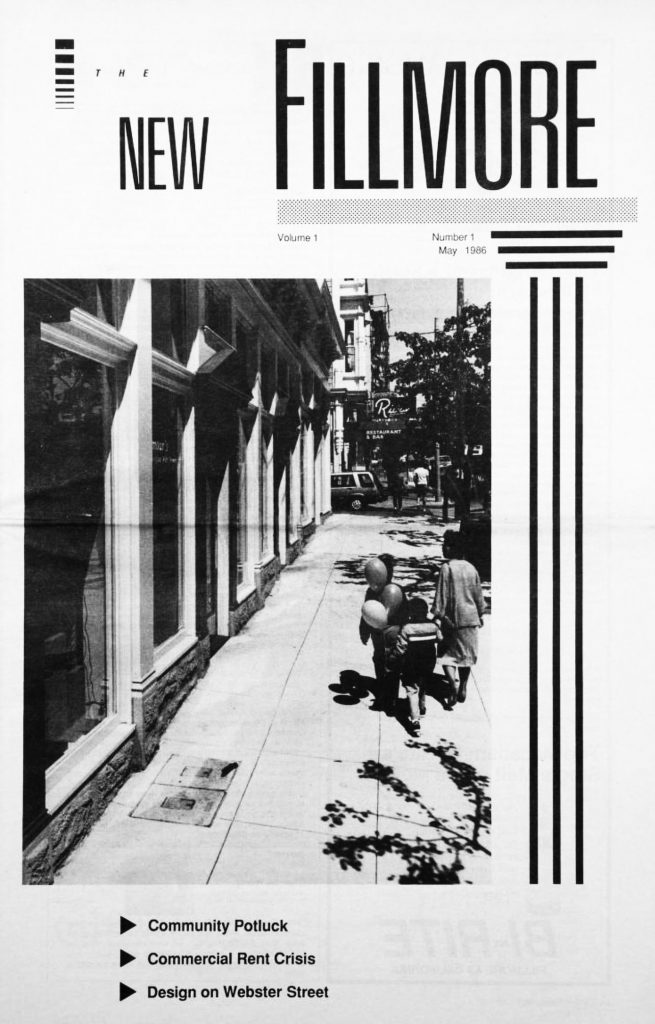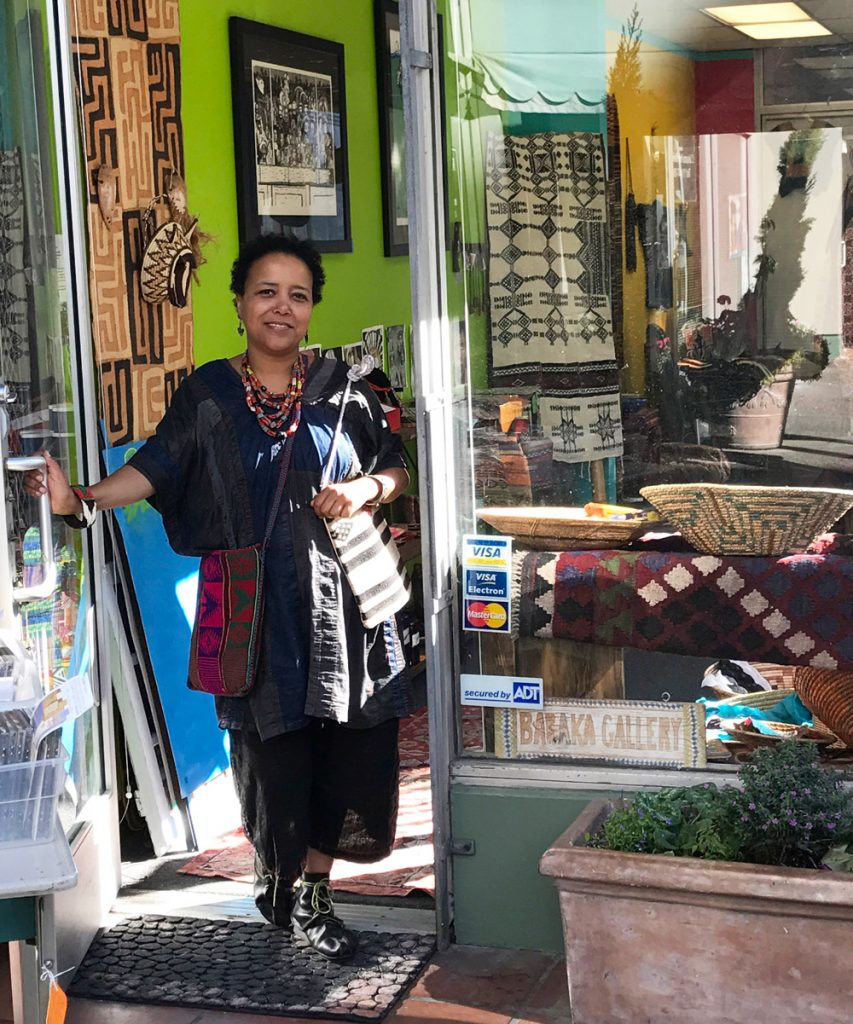By FRANCINE BREVETTI
If you are a tribal man of Niger intent on wooing a lady, you will likely wear a Wodaabe tunic at the Geerewol festival. “That’s where the handsome men of the tribe compete in a contest of endurance and beauty,” explains Shiffen Melaku.
Your sister would have embroidered this ritual robe for you to wear at the weeklong festival where young people meet to find mates among the other cattle-herding nomads.
Here in the neighborhood, you can buy such a garment at Shiffen’s Baraka Gallery, formerly of Oakland, and newly installed at 1230 Fillmore.
Shiffen prefers only her first name. For her gallery, she chose the name Baraka — Arabic for blessed or blessing — because elders would frequently say, during her travels in Morocco, “You’ve got the baraka.”
She says the raiment of the Wodaabe people has been the most difficult tribal textile to acquire. “They are not usually sold,” she says. “And those that are tend to go to the European market.”
Shiffen has been collecting textiles and artifacts from tribal societies in Ghana, Senegal, Niger, Madagascar, Morocco and Mexico for many years. She acquired the unusual textiles she shows and sells in the gallery during travels to those countries. Intermediaries also bring her goods from Mali and India.
Baraka Gallery also offers native jewelry, masks, toys and furniture, much of it handcarved. Shiffen is also preparing a space where she hopes to curate shows of local artists.
For its debut, the narrow boutique holds a profusion of tribal art, especially soft goods.
“I have a textile habit,” says Shiffen. She explains the difference in technique between Wodaabe tunics and Ghana’s strip weaving cloth called Kente while browsers can look at the real thing. It is also easy to see how they are made and worn from photographs and books on tribal art.
“Lately, there is a craze for indigo,” Shiffen says. The vegetable is powdered and fairly hammered into the cloth itself. With some pressure, she fingers a native skirt and shows the blue dye flaking off on her hands.
Learning is part of the adventure of visiting the new gallery. Suspended from the ceiling near the window onto Fillmore Street is a painted object carved in wood. Shiffen explains that it is in fact a hornbill puppet meant to be worn on top of the head by a performer who manipulates its wings.
A Fillmore native, Shiffen worked for 16 years at the Xanadu gallery on Maiden Lane before it closed two years ago. Housed in a shop designed by architect Frank Lloyd Wright, Xanadu specialized in Asian and African arts.
“I learned about everything in that gallery, but my main interest was the textiles from all over the world and the ethnographic folk arts from Africa, Asia,
Papua New Guinea and Latin America,” she says.
Xanadu’s closure gave her the impetus to branch out on her own and open her own shop in Oakland three years ago. “My experience at Xanadu gave me the contacts and connections I needed to source my products,” she says.
Shiffen first opened across from the Grand Lake Theater in Oakland. “But it was in an out-of-the-way place and I was always looking,” she says. “Then I found this opportunity to come back to San Francisco.”
She laughs at her reverse migration as many artists are moving to the East Bay. “Who comes back from Oakland?” she says. But she grew up at Pine and Buchanan and her mother still lives in the neighborhood.
Shiffen says she likes the diversity of the area and she has no worries about attracting a clientele. Tribal art is especially appreciated by those who are well traveled, she says.
Baraka Gallery is open most days from 11 a.m. to 6 p.m. at 1230 Fillmore. For more information, call 510-823-0823 or visit barakagallery.com.
Filed under: Art & Design, Retail Report






